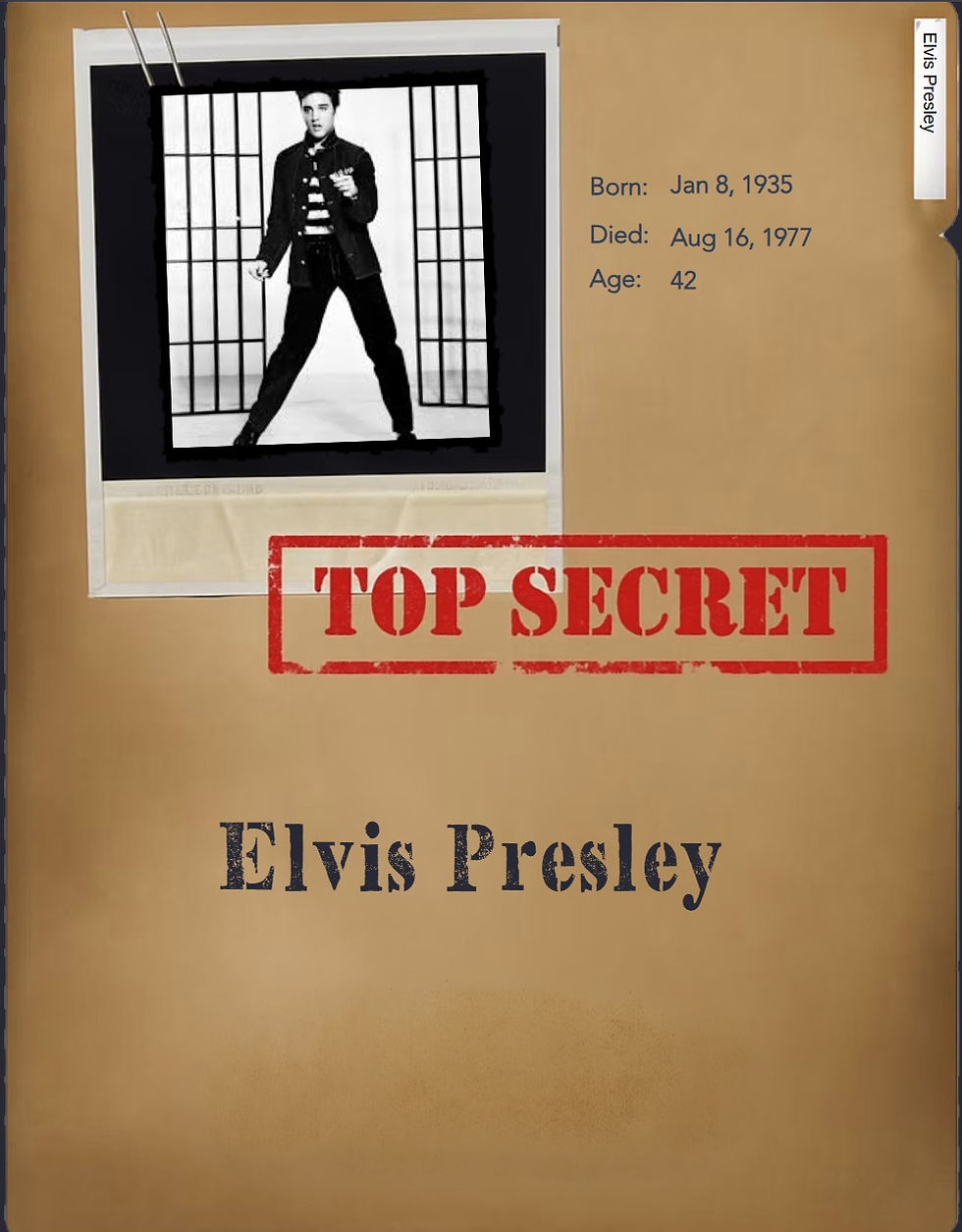The Real Story Behind the Day the Music Died and Its Conspiracy Theories
- Lee Davies
- Nov 16, 2025
- 3 min read

The Buddy Holly death on February 3, 1959, shocked the world and marked a tragic moment in music history. The small Beechcraft Bonanza plane crashed shortly after takeoff near Clear Lake, Iowa, killing Buddy Holly, Ritchie Valens, J.P. “The Big Bopper” Richardson, and pilot Roger Peterson. This event, often called The Day the Music Died, ended the lives of three rock and roll legends at the height of their careers. Despite the official investigation pointing to weather conditions and pilot error, many Buddy Holly conspiracy theories have persisted for decades. This post explores the most notable theories and the facts uncovered by the Buddy Holly crash investigation.

1. The Official Cause: Pilot Error and Weather Conditions
The Buddy Holly pilot error theory remains the most accepted explanation. The investigation found that poor weather, including low visibility and snow, combined with the pilot’s lack of experience flying solely by instruments, led to spatial disorientation. Roger Peterson, the pilot, was not certified for instrument flying, which made navigating in such conditions extremely risky.
The Buddy Holly crash investigation concluded that the pilot lost control shortly after takeoff, causing the fatal crash. This explanation fits the facts and the physical evidence found at the scene, including the plane’s maintenance records showing no mechanical faults.
2. The Buddy Holly Sabotage Theory
One of the most persistent Buddy Holly sabotage theories suggests the crash was no accident but a planned act linked to Holly’s recent split from his manager, Norman Petty. Holly had been at a turning point in his career and was reportedly in financial disputes with Petty. Some supporters of this theory point to missing money and rising tensions as motives for sabotage.
Despite these claims, no evidence has ever linked Petty or anyone else to tampering with the plane. Investigators found no signs of mechanical sabotage or unusual maintenance issues. The theory remains speculative and unsupported by facts.
3. The Big Bopper Conspiracy
Another popular Big Bopper conspiracy theory revolves around J.P. Richardson’s unexpected presence on the flight. Originally, he was not supposed to be on the plane, but he swapped seats with another band member due to illness. Some rumours suggested he was the real target of foul play.
In 2007, Richardson’s body was exhumed to investigate claims of a gunshot wound or struggle on board. The Buddy Holly forensic report from this examination found no evidence of bullet wounds, fractures, or injuries inconsistent with a high-impact crash. This ruled out foul play and confirmed the crash as the cause of death.
4. The Survivor Myth and the Pistol Mystery
A strange Buddy Holly myth claims that Holly survived the crash and tried to crawl away from the wreckage. This idea grew from the discovery of his .22 pistol found some distance from the crash site. Some speculated this meant a final confrontation or an attempt to escape.
Investigators clarified that the pistol was thrown clear during the violent impact, and all occupants died instantly or within moments. No evidence supports the idea of Holly surviving the crash or any struggle after impact.
5. Other Rumours and Theories
Several minor Buddy Holly rumours have circulated over the years, including:
The pilot was intoxicated: Toxicology reports showed no alcohol or drugs in Roger Peterson’s system.
Authorities covered up mechanical faults: Maintenance records and inspections showed the plane was in good condition.
Hidden motives involving other band members or external parties: No credible evidence supports these claims.
These theories often arise from the emotional impact of the tragedy and the desire to find deeper meaning or blame.

Why These Theories Persist
The Winter Dance Party crash ended the lives of three rising stars in rock and roll, leaving fans devastated. The sudden loss of Buddy Holly and his peers created a Buddy Holly mystery that invites speculation. The lack of survivors and the dramatic nature of the crash fuel ongoing interest in music history conspiracies.
The fact that Holly was at a career crossroads, combined with the tragic timing, makes the event fertile ground for stories beyond the official report. Yet, every thorough investigation, including modern forensic reviews, supports the conclusion of pilot error and weather as the cause.
What the Buddy Holly Crash Investigation Tells Us
The crash was caused by poor weather and the pilot’s lack of instrument flying experience.
No evidence supports sabotage or foul play.
The plane was mechanically sound and well-maintained.
The Big Bopper conspiracy was disproved by forensic examination.
The pistol found was displaced by the crash impact, not evidence of a struggle.
These facts help separate Buddy Holly myths from reality and honour the memory of the musicians without distortion.






Comments